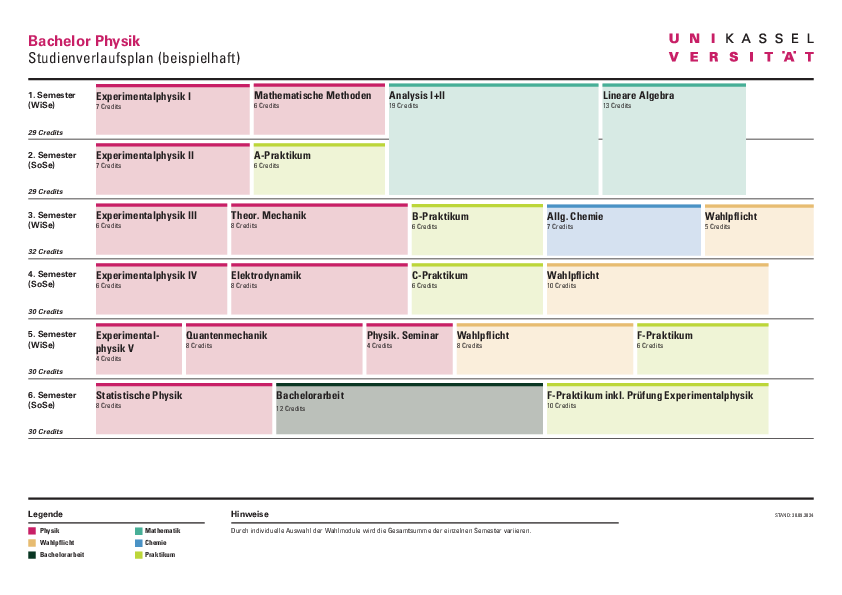How is the study program structured?
The content on this page was translated automatically.
Study structure
By combining compulsory and elective modules, the total number of 180 credits must be acquired to complete the bachelor's degree. The standard period of study is 6 semesters. Through individual selection of elective modules, the number of credits per semester may vary.
In the bachelor's program in physics, you will gain a broad basic knowledge of the central phenomena and mathematical models from all areas of physics. Only with this solid basis can you work in modern research. It is only in the master's program that you begin to specialize and are given a great deal of freedom in your choice of topics.
In the compulsory part you will receive in-depth knowledge of mechanics, electro- and thermodynamics, nuclear and particle physics, atomic, molecular and solid state physics, quantum mechanics as well as basics of mathematical methods and general chemistry.
For in-depth study or individual specialization, you can put together your own personal schedule from a large number of elective modules .
In an optional six-week professional internship it is possible to orientate yourself about possible professional fields, with a stay abroad you can prepare yourself for working in international research networks.
